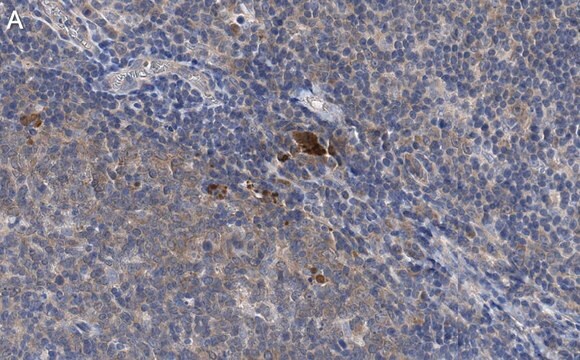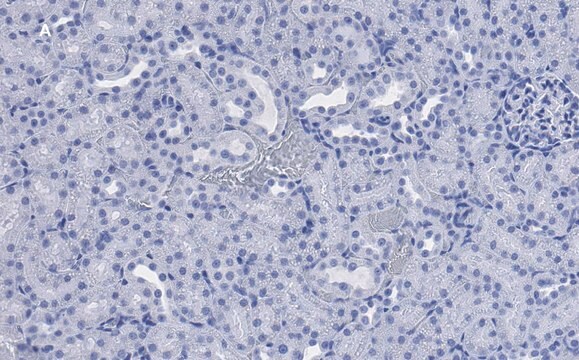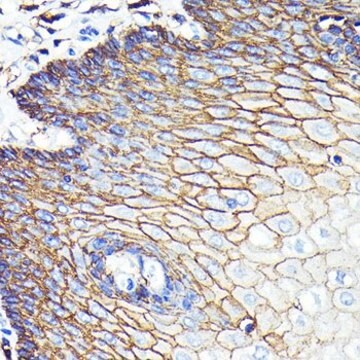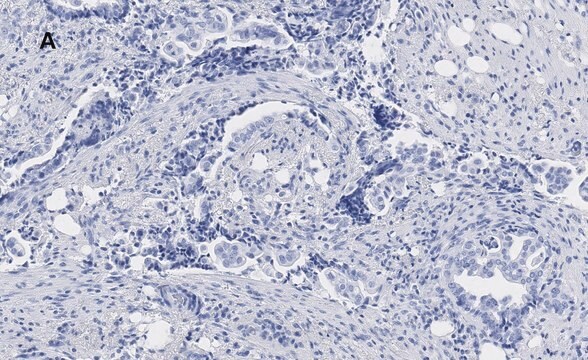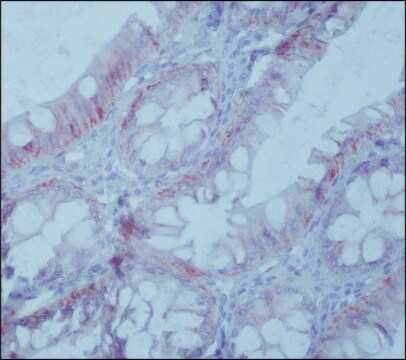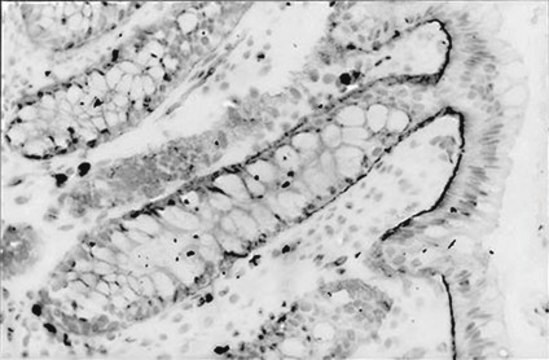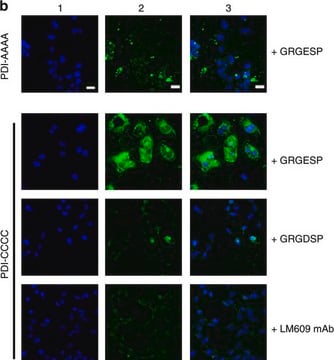MAB4399-I
Anti-CD133 (Prominin-1) Antibody, clone 17A6.1
clone 17A6.1, from mouse
Synonim(y):
Prominin-1, Prominin-like protein 1, Antigen CD133
About This Item
Polecane produkty
pochodzenie biologiczne
mouse
Poziom jakości
forma przeciwciała
purified immunoglobulin
rodzaj przeciwciała
primary antibodies
klon
17A6.1, monoclonal
reaktywność gatunkowa
human
metody
immunocytochemistry: suitable
western blot: suitable
izotyp
IgG2aκ
numer dostępu NCBI
numer dostępu UniProt
Warunki transportu
wet ice
docelowa modyfikacja potranslacyjna
unmodified
informacje o genach
human ... PROM1(8842)
Opis ogólny
Specyficzność
Immunogen
Zastosowanie
Jakość
Western Blotting Analysis: 1 µg/mL of this antibody detected 2.5 µg of recombinant Prominin-1 protein.
Opis wartości docelowych
Postać fizyczna
Inne uwagi
Nie możesz znaleźć właściwego produktu?
Wypróbuj nasz Narzędzie selektora produktów.
polecane
Kod klasy składowania
12 - Non Combustible Liquids
Klasa zagrożenia wodnego (WGK)
WGK 1
Temperatura zapłonu (°F)
Not applicable
Temperatura zapłonu (°C)
Not applicable
Certyfikaty analizy (CoA)
Poszukaj Certyfikaty analizy (CoA), wpisując numer partii/serii produktów. Numery serii i partii można znaleźć na etykiecie produktu po słowach „seria” lub „partia”.
Masz już ten produkt?
Dokumenty związane z niedawno zakupionymi produktami zostały zamieszczone w Bibliotece dokumentów.
Nasz zespół naukowców ma doświadczenie we wszystkich obszarach badań, w tym w naukach przyrodniczych, materiałoznawstwie, syntezie chemicznej, chromatografii, analityce i wielu innych dziedzinach.
Skontaktuj się z zespołem ds. pomocy technicznej